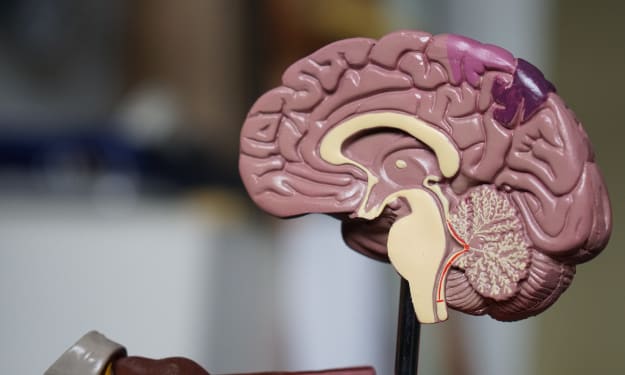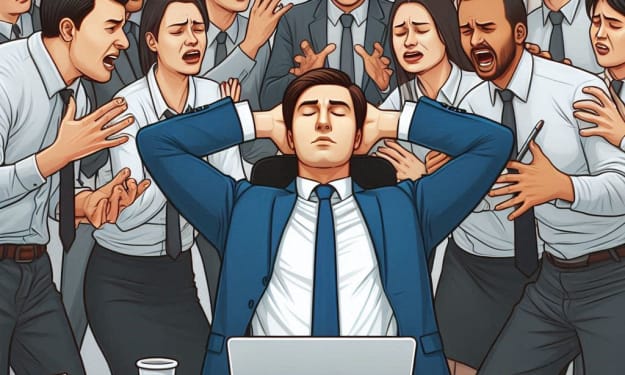
Imagine living with a mental illness that convinces you your loved ones are impostors plotting harm, or that you possess the unsettling ability to consume books. Picture waking up one day feeling like yourself, only to be confronted with a stranger's reflection in the mirror the next. These eerie scenarios might sound like fragments from a horror tale, but for some, they are daily realities. While only a small percentage grapple with these specific disorders, a staggering 450 million people worldwide contend with some form of mental illness. This video delves into the strangest psychoses, exploring seven particularly peculiar conditions.
Cotard Delusion: The Walking Dead Syndrome
Cotard Delusion thrusts individuals into a nightmarish realm where they genuinely believe they are the walking dead or spirits, with their bodies disintegrating. Originating in 1880, this rare disorder has instances of sufferers starving themselves to death, convinced their bodies are decaying. Jules Cotard, a neurologist, chronicled the disorder's peculiarities, and it remains a haunting exploration of distorted self-perception. While it has turned out to be very rare, instances like the one in Haiti, where a man believed he had succumbed to AIDS and found himself in Hell, underscore the profound impact of this unsettling disorder on those affected.
Reduplicative Amnesia: The Duplicated Reality
Reduplicative amnesia warps a person's perception, making them adamant that a place has been duplicated, existing in two locations simultaneously. Typically associated with tumors, dementia, brain injuries, or psychiatric disorders, this peculiar belief manifests in various forms. The conviction that a place exists in two places at once is a testament to the intricate ways the mind can distort reality. The interplay between neurological factors and cognitive processes sheds light on the enigmatic nature of this disorder, challenging our understanding of how the brain constructs and interprets the world around us.
Synesthesia: A Symphony of Senses
Synesthesia, a more recognized condition, combines senses into a heightened, interconnected experience. Individuals with synesthesia may see musical notes, feel colors, or even smell words. The cause remains elusive, challenging historical misconceptions that dismissed it as psychosomatic. The intricacies of synesthesia open a gateway to understanding the intricate crossroads of sensory perception. While it might seem fantastical to envision a world where sounds evoke colors or words carry scents, synesthesia underscores the incredible diversity of human perception.
Dissociative Identity Disorder: The Shattered Self
Formerly known as Multiple Personality Disorder, Dissociative Identity Disorder (DID) remains shrouded in mystery. Less than 1% of the population experiences DID, cycling through multiple identities, each with distinct memories, emotions, and behaviors. Convincing someone with DID of their condition proves nearly impossible. The fragmented self, as portrayed in movies and TV shows, hints at the complexity of identity and memory within the human psyche. The American Psychiatric Association's acknowledgment of the challenges associated with memories, identities, emotions, perceptions, behaviors, and sense of self reveals the intricate web of psychological phenomena at play.
Alice in Wonderland Syndrome: Reality Through a Distorted Lens
Drawing parallels to Lewis Carroll's tale, Alice in Wonderland Syndrome distorts how individuals perceive their surroundings. Sounds become louder or quieter, objects appear larger or smaller, and even the sense of movement becomes warped. Often compared to an LSD trip without the high, this disorder is rare and typically affects those in their 20s. The journey through a distorted Wonderland mirrors the surreal experience of those grappling with this disorder. Understanding how sensory perception can deviate from reality offers valuable insights into the intricacies of human consciousness.
Taijin Kyofusho: Fear of Social Judgment
Taijin Kyofusho, translating to "disorder of fear of interpersonal relations," predominantly affects Japanese individuals. Those with this disorder fear making socially unacceptable choices, believing their appearance or habits are sources of shame. As many as 20% of Japanese men have this disorder, which can be a big problem in a country with strict social rules like Japan. The profound impact of cultural norms on mental health underscores the intricate interplay between societal expectations and individual well-being.
Exploding Head Syndrome: Sonic Illusions
Contrary to its ominous name, Exploding Head Syndrome involves hearing unreal sounds, such as gunshots or explosions, as vividly as if they were real. While not physically painful, these auditory hallucinations can be disconcerting. Insomnia and anxiety are considered primary triggers, suggesting that managing stress and getting sufficient sleep may alleviate symptoms. The peculiar world of auditory hallucinations opens a window into the intricate relationship between sleep, stress, and sensory perception.
In this exploration of the mind's intricacies, we encounter the bizarre, the perplexing, and the downright surreal, emphasizing the need for greater awareness and understanding of these unique mental conditions. As we unravel the enigma of these disorders, we gain not only insights into the complexities of the human mind but also a deeper appreciation for the resilience of those who navigate these uncharted territories every day.
About the Creator
Līva
World is interesting place. Scary, but worth living.
Nature is full of surprises and people are... well, people are something else.
Art is the best doctor.
Enjoyed the story? Support the Creator.
Subscribe for free to receive all their stories in your feed. You could also pledge your support or give them a one-off tip, letting them know you appreciate their work.





Comments
There are no comments for this story
Be the first to respond and start the conversation.